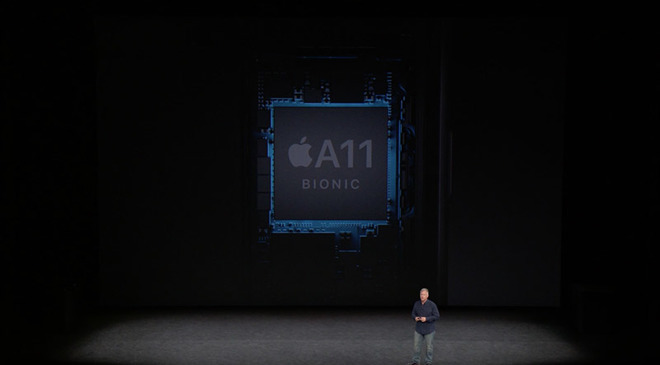Apple has become the target for another class action suit over the Meltdown and Spectre vulnerabilities found in Intel and ARM-based processors, as a suit filed in the California U.S. district court is going after the company for designing the A-series processors bearing these same defects.
The class action filing by legal firm Wolf Haldenstein Adler Freeman & Herz was filed on Jan. 8, at the U.S. District Court in San Jose, California. The filing lists Jacqueline Olson and Anthony Bartling as the plaintiffs, identified as owners of various iPhone models, on behalf of themselves and all others similarly situated as part of the class complaint.
It is alleged that all Apple Processors are defective because they were designed in a way that allows hackers and malicious programs potential access to highly secure information stored on iDevices. Noting the revelations of Meltdown and Spectre in Intel chips, the complaint acknowledges that a patch to protect from Meltdown is available, but will result in a reduction in processing speed for the chip.
For Spectre, the complaint asserts there is no complete firmware or software patch for the vulnerability at this time, adding that it is not precisely known if any patches or firmware to defeat it could do so without slowing the processor's speed. A long term solution to completely eliminate the risk of the Spectre issue may require the development of new hardware and/or architectures, states the filing.
Because of this, it is claimed that Apple has not been able to offer an effective repair to its customers, in that a patch affecting processor performance is not a legitimate solution, as is any patch that can fully eliminate the vulnerabilities altogether.
"Plaintiffs would not have purchased the iDevices had they known of the Security Vulnerabilities," write the complainants, offering no suggestions for what they would have purchased otherwise. "Or they would not have paid the prices they paid for the iDevices (in which the Apples Processors were a component) had they known that they would be subject to the Security Vulnerabilities as well as a slowdown in speed and thus decrease in quality and value."
The complaint also claims Apple has known about the defects since at least June of 2017. While Apple admitted the vulnerability affects its devices, and had released an iOS update to address Meltdown in December, the filing suggests Apple knew or should have known of the design defect much earlier and could have disclosed the design defect more promptly.
Due to knowing about the issue and continuing to sell affected devices without repairing or warning of the vulnerability beforehand, the suit alleges the iDevices it sold and distributed were not of the quality represented and were not fit for their ordinary purposes.
The filing insists that there are at least 100 members in the proposed class that have been affected by the issue, and the aggregated claims of the members will exceed the sum of $5 million if the suit proceeds and is found in its favor.
This is not the only class action suit Apple has become involved with relating to Meltdown and Spectre, as a separate class action suit taking on Apple, Intel, and ARM over the matter has recently been filed in Israel.
Intel has been the main subject of the lawsuits, both from those claiming it has affected consumers as well as those on behalf of shareholders.
 Malcolm Owen
Malcolm Owen




-xl-m.jpg)


-m.jpg)






 Chip Loder
Chip Loder
 Thomas Sibilly
Thomas Sibilly
 Wesley Hilliard
Wesley Hilliard
 Christine McKee
Christine McKee
 Amber Neely
Amber Neely
 William Gallagher
William Gallagher









40 Comments
A bunch of greedy a-holes and ambulance chasers hoping to cash in big on something that isn't Apple's fault. LewK
Literally, the scum of the earth.
Why the law firms are becoming so stupid? You can not sue a company if you do not incur any damage. I think US is rapidly degrading into a country being controlled by stupid and irresponsible people,
Again, all parties to this suit must immediately cease use of any all all technology that is "vulnerable" to the asserted flaw. They must do so both individually and also be banned from conducting commerce with anyone who also uses anything that may contain the asserted flaw.
If you are going to make the claim of "harm", live up to your claim.